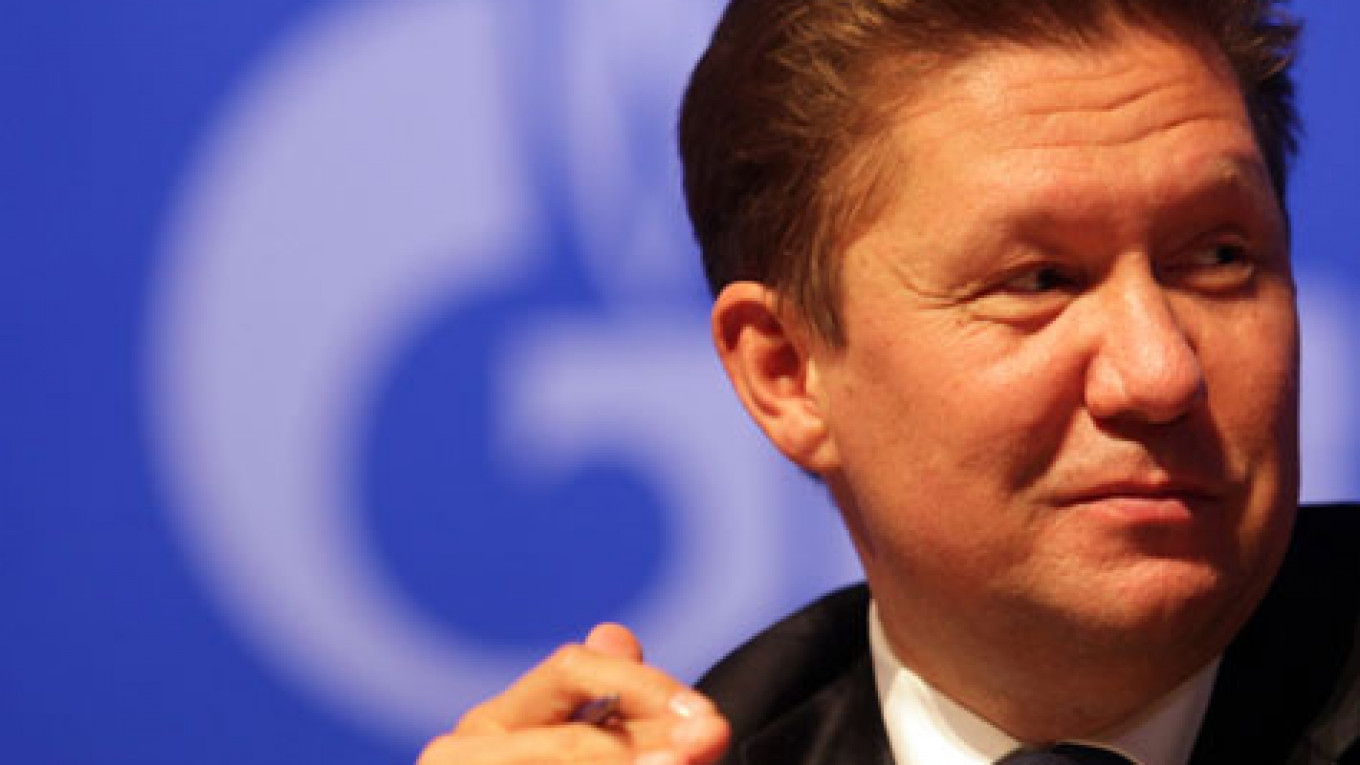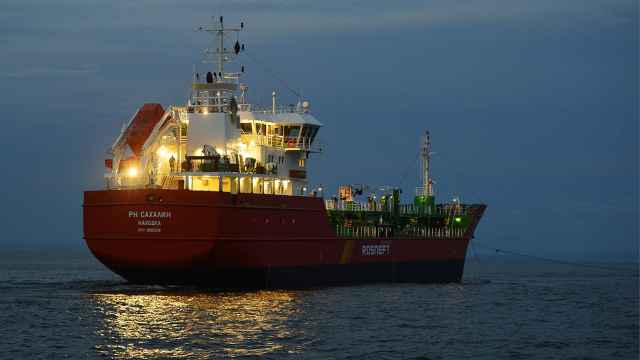Gazprom earned nearly $45 billion last year, up 35 percent and beating market expectations thanks to rising production and prices — figures that show why it has become such a tempting tax target.
Analysts say there could be tough times ahead for state-controlled Gazprom as the government targets the lucrative gas industry to help cover the spending promises made by Prime Minister Vladimir Putin ahead of his election as president in March.
The government plans to raise regulated gas prices within Russia by just 15 percent per year, turning down a call by Gazprom for a bigger hike to compensate for an increase in the Mineral Extraction Tax, or MET, that would grab 80 percent of the price hike.
"Clouds seem to be gathering around the gas sector, as an MET hike seems more and more likely. Any guidance on the portion of the burden to be levied on Gazprom is key to the stock's performance," Alfa Bank said in a note before the results.
Additionally, the company faces marketing challenges in Europe, where cash-strapped buyers are pressing for discounts. There is also pressure on prices worldwide now that the United States has become the world's top gas producer thanks to its shale gas boom. A potential upheaval among top management is a further factor worrying investors.
Gazprom's 2011 net income attributable to shareholders rose to 1.31 trillion rubles ($44.68 billion) from 969 billion rubles, above the 1.27 trillion projected in a Reuters poll of analysts.
Sales increased to 4.64 trillion rubles from 3.6 trillion rubles in the previous year, also ahead of 4.62 trillion rubles expected by analysts.
Net debt rose to 1.03 trillion rubles as of Dec. 31 2011 from 870.99 billion in the previous year as Gazprom increased borrowings for new projects, including its expansion on the Yamal Peninsula and the second stage of Nord Stream subsea pipeline to Germany.
Gazprom is seeking to develop deposits in Yamal, north of its traditional production regions where reserves are gradually being depleted, to achieve its long-term goal of boosting market share in Europe to a third from about a quarter now.
In the summer, Gazprom is set to launch the Bovanenkovskoye field, the largest on Yamal, with reserves of 4.9 trillion cubic meters, enough to supply global demand for over a year.
Prices under Gazprom's long-term contracts — the backbone of its deals with European buyers — are tied to those of oil and oil products, which rose sharply last year.
Export chief Alexander Medvedev has said European sales volumes could be flat this year due to stiff competition from liquefied natural gas and cheaper spot markets.
There has, meanwhile, been market speculation about the future of long-time chief executive Alexei Miller, a former colleague of President-elect Vladimir Putin in the St. Petersburg mayor's office in the 1990s.
"There are two ideas related to Gazprom: taxes and changes in management. Gazprom has to deal with different kinds of problems compared to what it faced in the past," UralSib Analyst Alexei Kokin said.
"Now, it has to solve issues with European customers. It also has to choose the right strategy to shield Gazprom from expected exports of U.S. gas to Europe."
A Message from The Moscow Times:
Dear readers,
We are facing unprecedented challenges. Russia's Prosecutor General's Office has designated The Moscow Times as an "undesirable" organization, criminalizing our work and putting our staff at risk of prosecution. This follows our earlier unjust labeling as a "foreign agent."
These actions are direct attempts to silence independent journalism in Russia. The authorities claim our work "discredits the decisions of the Russian leadership." We see things differently: we strive to provide accurate, unbiased reporting on Russia.
We, the journalists of The Moscow Times, refuse to be silenced. But to continue our work, we need your help.
Your support, no matter how small, makes a world of difference. If you can, please support us monthly starting from just $2. It's quick to set up, and every contribution makes a significant impact.
By supporting The Moscow Times, you're defending open, independent journalism in the face of repression. Thank you for standing with us.
Remind me later.






